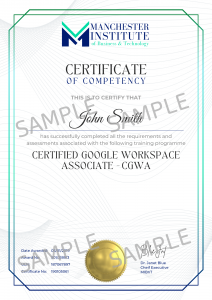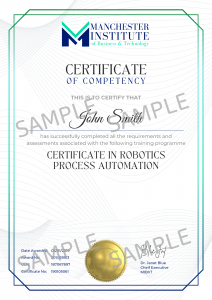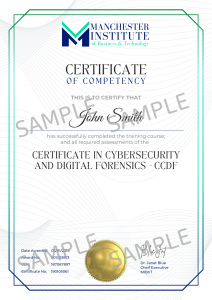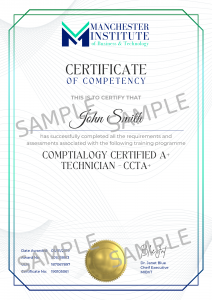Reach new heights
Start your online course today!
Skill up and have an impact! Your business career starts here.
Time to start a course.
Global Standards
All the MIBnT courses and its modules are industry focused and developed to meet the global standard. We review the programs regularly to ensure that they suit the needs of the learners and organisations. The programs are reviewed by highly qualified experts in the relevant sector.
Career Enhancement
The courses of MIBnT are keen to prepare learners with the knowledge and skills that employers are looking for. Leaners are given the opportunity to enhance understanding of business management and information technology and grow key competencies to tackle work projects and situations more effectively.
Delivered Globally
IBT has numerous approved centres spread globally; therefore learners can enrol for any IBT program through one of its approved centres.
Flexible Study Mode
The centres of MIBnT are free to choose their desired mode of delivery which includes Classroom, Blended, Distance or Online Learning. Thus learners can get the benefits of flexible study options.

$200.00 $99.00
Duration: 5 days
Transform how you create, collaborate and share with Google Drive, the popular cloud-based storage service available to anyone from their Gmail account. In this course, you will learn the fundamentals of Drive and its built-in essential productivity apps to work smarter from virtually anywhere, online or offline.
You will learn how to whip up presentations in Slides, edit Docs with your team in real-time, and create pivot tables and charts in Sheets. You’ll also learn how to design infographics in Drawings and make surveys in Forms. By the end of the training, you will have mastered the fundamentals of Google Drive and Apps to increase your productivity and seamlessly collaborate with others.
Designed for beginners, you don’t need any prior knowledge to get started with this Google Drive course.
After this course, you will be able to:
- Upload, download, delete and restore files in Google Drive.
- Install and use the offline Drive client to sync files to your computer.
- Share files with collaborators and set permissions for viewing, editing and commenting.
- Discover how to use Google Drive on iOS devices.
- Create Google Docs, Slides, Sheets, Forms and Drawings.
- Insert images, links, comments, footnotes and track changes in Docs.
- Use themes, format slides and add animations and transitions in Slides.
- Sort and filter data, create Pivot Tables and charts, and apply formatting to Sheets.
- Create different question types, a self-correcting quiz and an overview of responses in Forms.
- Insert and manipulate shapes and create an infographic in Drawings.
- Add and remove third-party add-ons in native Google apps.
Who is this Google Drive course for:
- Anyone new to Google’s productivity apps or transitioning from the Microsoft Office suite
- Anyone looking to start with the basics of how to use Google Drive to learn some time-saving tips
- Ideal Google Drive training for teachers, students, teams, freelancers, and business professionals
Course Outline
Using Google Drive
- Managing files
- Creating and managing folders
- Locating files
- Changing display and settings
- Sharing files and folders
Using Gmail
- Personalizing settings
- Managing your inbox
- Managing and communicating with contacts
- Locating messages
- Using Gmail Offline
Working In Docs
- Setting up pages
- Inserting non-text elements
- Changing text attributes
- Formatting text blocks
- Using content management tools
- Inserting and editing tables
- Collaborating and sharing in Docs
- Download as tools
Working In Sheets
- Managing values, rows, cells, or columns
- Formatting sheets and cells
- Inserting non-text elements
- Using functions
- Managing and transforming data
- Collaborating and sharing in Sheets
- Importing and converting from other file types
Working In Slides
- Building a presentation
- Working with text
- Working with non-text elements
- Arranging objects
Sample Certificate


$1,800.00 $899.00
Duration: 10 days
The demand for RPA and intelligent automation has never been greater, with many jobs available to qualified RPA professionals. Enterprises are looking for trained RPA professionals to boost digital workforce ROI. MIBnT offers globally recognized certifications that demonstrate your RPA knowledge and skills proficiency.
Our industry-leading RPA certification is ideal for developers, IT professionals, business analysts, project managers, and others involved with creating or maintaining your organization’s RPA platform. The certifications address core competencies like automating business processes, monitoring all processes of the RPA infrastructure, and managing a Digital Workforce of any size.
LEARNING OUTCOME:
- Applying robotics process automation to certain repetitive tasks.
- A drastic reduction of costs in the company; efficiency in the application of resources, and dispense labour for automated tasks.
- By automating processes using machines, we can achieve much higher productivity peaks, depending only on our available resources.
- Robots can interact with several different sources and databases, allowing them to collect this data and present it in an orderly manner to end-users: humans.
- Reduce operational risk which helps to optimize resources and increase efficiency at the operational level. In other words, it is possible to do more with less, eliminate production bottlenecks, and reduce human errors.
- Abandon tasks with little added value for the organization. That way, we can focus more on our customers and provide a more focused approach to their needs.
Course Outline
Module 1: AI/ML with RPA
- Where does AI/ML fit in RPA?
- Looking ahead
Module 2: Introduction to RPA
- What is RPA
- Definition
- Pros and Cons
- RPA Tools / Vendors
- Activity to Understand and Introduce RPA
- RPA vs Traditional Automation
- Process driven
- Data Driven
Module 3: RPA Applications
- Processes suitable for RPA
- Criteria/Guidelines
- Limitations/Challenges
- Activities/Exercises
- Benefits of RPA
- Opportunity
- Areas for RPA
- RPA Hands-On Activities and Demo
- Creating first RPA Bot
- Automate Invoice, Processing, or Reports
- Extract, Merge or Reconcile Information via RPA
- Evaluating RPA
- Workflows
- Processes
- Different Types of RPA
- Skills
- Checklist
- RPA Use Cases
- Discussion & Examples
- Application Scenarios
- Cost
- Implementing
- RPA in Accounting/Finance
Module 4: RPA in the Future
- Future Advancements and Applications of RPA
- Final Portfolio
- Portfolio submission and final project
Sample Certificate


$3,000.00 $1,249.00
Duration: 20 days
This course will equip you with the skills needed to become an expert in this rapidly growing domain. You will learn comprehensive approaches to protecting your infrastructure, including securing data and information, running risk analysis and mitigation, architecting cloud-based security, achieving compliance and much more with this best-in-class program.
Module 1: Cyber-crime and Forensics Awareness
- Upon successful completion of this module, you will have a systematic understanding of knowledge, and critical awareness of current cyber security challenges and how they are exploited through cybercrime. This includes gaining practical knowledge of how to perform and critical evaluate a crime scene from a digital perspective.
- This module also enables a conceptual understanding that enables the learner to critically evaluate and engage in scholarship in the discipline, including proposing and testing both research and investigative hypotheses.
- The module covers many different aspects of cybercrime and how they are fundamentally possible, often through exploiting weaknesses in computer and network security.
- The module presents an introduction to forensic analysis of digital systems, which focuses on recovering deleted data from persistent data storage mechanisms (e.g. hard drives).
Module 2: Emerging Technologies for Cyber Physical Systems
- Cyber-Physical Systems (CPS) are collections of physical and software components that communicate and interact with users via networks.
- CPS extend the traditional capabilities of embedded systems by incorporating sensor networks and data services to enable previously disparate systems to become more integrated through ‘smart’ capabilities. Examples of CPS include the Internet of Things (IoT), smart cities and digital manufacturing.
- This module will enable learners to explore contemporary issues in relation to emerging technologies that can be used to realise cyber-physical systems.
Module 3: Digital Forensics
- Digital Forensics (DF) is the process of identifying, acquiring, analysing and reporting on digital evidence (DE) used in a wide range of investigations.
- Digital Forensic Investigations (DFIs) have a variety of applications, being used in civil, administrative, and criminal proceedings in pursuit of DE.
- A typical DFI would involve the investigation of crimes such as hacking and possession of illegal imagery, etc. The aim of this module is to provide the learner with the knowledge and critical understanding of the key concepts in Digital Forensics.
- Through this module, the learner will be taught how to identify, preserve, extract and analyse digital evidence in a forensically-sound manner and report on the findings. Furthermore, this module will equip the learner with practical skills in applying specialised forensic tools, such as FTK Imager and Autopsy, and techniques, such as data carving and file system analysis, to a specific application scenario.
Module 4: Applications of Artificial Intelligence in Cyber Security
- Artificial intelligence (AI) is the study and development of intelligent behaviour exhibited in computational form. Its purpose is to demonstrate intelligent characteristics that provide enriched system functionality beyond that of traditional software systems.
- The benefits of AI spread across many application areas, and one such area is that of cyber security.
- Artificial intelligence can be loosely categorised into symbolic and statistical approaches, which are often used depending on application requirements.
- In this module, the learner will study the different types of AI systems and focus on their different application use cases in cyber security.
Module 5: Security Architecture
- Security architecture is a unified security design that addresses the necessities and potential risks involved in a certain scenario or environment.
- It also specifies when and where to apply security controls.
- The design process is generally reproducible.
In security architecture, the design principles are reported clearly, and in-depth security control specifications are generally documented in independent documents. - System architecture can be considered a design that includes a structure and addresses the connection between the components of that structure.
Module 6: Incident Response
- Incident response (IR) is the steps used to prepare for, detect, contain, and recover from a data breach. An incident response plan is a document that outlines an organization’s procedures, steps, and responsibilities of its incident response program.
- Incident response planning often includes the following details:
- how incident response supports the organization’s broader mission
- the organization’s approach to incident response
- activities required in each phase of incident response
- roles and responsibilities for completing IR activities
- communication pathways between the incident response team and the rest of the organization
- metrics to capture the effectiveness of its IR capabilities
Module 7: Final Projects
- Students should submit a portfolio of their findings and understanding of attack types and incident report.
- They will also provide evidence of understanding on how to prevent and detect a cybercrime and a digital forensic.
Sample Certificate


$1,000.00 $499.00
Duration: 10 days
Comptialogy Network+ is the premier vendor-neutral networking certification. Our CCTN+ course is designed to provide in-depth understanding and the foundation you need not only to be productive on the job but also to be successful in more specialized topics and in your pursuit of vendor-specific certifications.
Earning CCTN+ certification increases your value in the marketplace, providing proof of your knowledge, skills, and ability to manage, maintain, troubleshoot, install, operate, and configure basic network infrastructure. Our CCTN+ course points you in the right direction, allowing you to demonstrate the concepts covered on the exam in a real-world, hands-on environment.
This course is designed for individuals who have basic networking skills and who are interested in obtaining a job as an entry-level networking technician. This course is also designed for students who are seeking the CCTN+ certification.
After completing this course, students will be able to:
* Identify network technologies.
* Install and configure networking capabilities.
* Support mobile digital devices.
* Support printers and multifunction devices.
* Identify security threats, vulnerabilities, and controls.
* Implement security controls.
* Troubleshoot system-wide issues.
* Identify basic network theory concepts and major network communications methods.
* Describe bounded network media.
* Identify unbounded network media.
* Identify the major types of network implementations.
* Identify TCP/IP addressing and data delivery methods.
* Implement routing technologies.
* Identify the major services deployed on TCP/IP networks.
* Identify the infrastructure of a WAN implementation.
* Identify the components used in cloud computing and virtualization.
* Describe basic concepts related to network security.
* Prevent security breaches.
* Respond to security incidents.
* Identify the components of a remote network implementation.
* Identify the tools, methods, and techniques used in managing a network.
* Describe troubleshooting of issues on a network
Course Outline
Network Fundamentals
- Network Theory
- Bounded Network Media
- Unbounded Network Media
- Network Implementations
TCP/IP Addressing & Services
- TCP/IP Addressing and Data Delivery
- Routing
- TCP/IP Services
Networking Technologies
- WAN Infrastructure
- Cloud and Virtualization Technologies
Network Security
- Network Security Basics
- Preventing Security Breaches
- Responding to Security Incidents
Network Access & Troubleshooting
- Remote Networking
- Network Management
- Troubleshooting Network Issues
Sample Certificate


$1,000.00 $499.00
Duration: 10 days
If you are getting ready for a career as an entry-level information technology (IT) professional or computer service technician, the CCT-A+ course is the first step in your preparation. The course will build on your existing user-level knowledge and experience with personal computer (PC) software and hardware to present fundamental skills and concepts that you will use on the job. In this course, you will acquire the essential skills and information you will need to install, configure, optimize, troubleshoot, repair, upgrade, and perform preventive maintenance on PCs, digital devices, and operating systems.
This course can benefit you in two ways. Whether you work or plan to work in a mobile or corporate environment where you have a high level of face-to-face customer interaction, where client communication and client training are important, or in an environment with limited customer interaction and an emphasis on hardware activities, this course provides the background knowledge and skills you will require to be a successful computer technician.
This course is designed for individuals who have basic computer user skills and who are interested in obtaining a job as an entry-level IT technician. This course is also designed for students who are seeking the CCT-A+ certification.
After completing this course, students will be able to:
* Identify the hardware components of personal computers and mobile digital devices.
* Identify the basic components and functions of operating systems.
* Identify networking and security fundamentals.
* Identify the operational procedures that should be followed by professional PC technicians.
* Install, configure, and troubleshoot display devices.
* Install and configure peripheral components.
* Manage system components.
* Manage data storage.
* Optimize and maintain Microsoft Windows.
* Work with other operating systems.
* Identify the hardware and software requirements for client environment configurations.
Course Outline
Information Technology Fundamentals
- Hardware Fundamentals
- Operating System Fundamentals
- Networking and Security Fundamentals
- Safety and Operational Procedures
- Safety and Operational Procedures
- Supporting Display Devices
Operating Systems Overview
- Installing and Configuring Peripheral Components
- Managing System Components
- Managing Data Storage
Installing Operating System
- Installing and Configuring Microsoft Windows
- Optimizing and Maintaining Microsoft Windows
- Working With Other Operating Systems
Customized Client Environments
- Configuring Operating System
- Supporting Printers and Multifunction Devices
- Security Threats, Vulnerabilities and Controls
- Implementing Security Controls
- Troubleshooting System-Wide Issues
Sample Certificate


$3,000.00 $1,499.00
Duration: 5 days
CMP is administered by MIBnT; one of the most renowned institutes for business management and communications in the UK. By earning CMP candidates demonstrate that they have mastered the management and business English body of knowledge, obtained the skills of a professional management executive, and are committed to MIBnT's core values and code of ethics.
Course Outline
Management Functions & Styles
Leadership & Motivation
Introduction to Human Resources Management
Understanding Financial Information
Conflict Management
Innovation in Time Management
Team Building
Setting up Effective KPIs
Sample Certificate